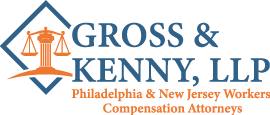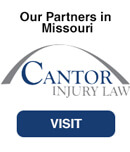Occupational Hazards at Work in Philadelphia
Every profession has its risks, but when injury or illness results from exposure to occupational hazards at work in Philadelphia, Workers’ Compensation benefits can help injured employees take the time they need to heal without worrying about the financial impact of lost wages. The attorneys at Gross & Kenny, LLP, are committed to helping workers injured on the job claim the Workers’ Compensation benefits they are entitled to receive.

Types of Occupational Hazards
Whether your South Philly job has you walking on scaffolding high above the ground, performing repetitive motions such as lifting or bending, or requires you to sit for hours at a desk, you have the potential to suffer an injury or illness when exposed to the occupational hazards that surround you. The most common types of occupational hazards in Bustleton include the following:
- Asbestos, Heavy Metals and Toxic Chemicals: Workers exposed to asbestos, arsenic, beryllium, cadmium, lead, and mercury, or to toxic chemicals like hydrofluoric acid, chlorine gas, and methyl alcohol have a high risk of developing mesothelioma, asbestosis, respiratory illnesses, kidney damage, skin diseases, and a variety of cancers. Construction workers, miners, refinery workers, metal processors, and maintenance workers exposed to cleaning chemicals are especially prone to complications from exposure to these occupational hazards.
- Electrical Hazards: Electrocution and electrical burns are some of the most serious workplace injuries, often leading to lifelong disability, disfigurement, and fatal injuries. Electricians, construction workers, landscapers, and those in the manufacturing industry are routinely exposed to live wires, overloaded circuits, overhead power lines, contact with wet surfaces, and damaged insulation.
- Ergonomic Hazards: Frequent lifting, poor posture, repetitive movements, and improperly adjusted workstations or office chairs can lead to injuries to the back, knees, legs, hands, arms, elbows, neck, and shoulders. These types of injuries often require surgical intervention and extended recovery periods that include ongoing physical rehabilitation.
- Exposure to Extreme Heat or Cold: Working outdoors or in confined spaces that expose workers to extreme temperatures can lead to frostbite, hypothermia, heatstroke, and dehydration. Frostbite can lead to amputation of extremities including fingers and toes, and heatstroke and dehydration from exposure to high temperatures can cause fatality if not treated promptly. Prolonged exposure to the sun’s ultraviolet rays can also lead to sun poisoning and skin cancers.
- Falls: Falls from high places, from ladders or scaffolding, or into deep crevices or holes can lead to serious head, neck, back, and leg injuries.
- Heavy Machinery: Working with or around forklifts, construction vehicles, front loading and backhoe machines, and industrial machinery can cause serious injuries and in some cases amputation or fatality. Heavy loads that fall from a forklift, construction vehicles with limited vision, and hands or limbs that become caught in heavy machinery can result in life-threatening injuries and permanent disability.
- Loud Noises: Routine exposure to loud noises in the workplace can lead to permanent hearing loss. A significant hearing loss can affect a workers’ ability to continue practicing their profession and can limit their independence in their daily life as well.
- Radiation: Workers in the field of nuclear energy and medicine, as well as x-ray technicians, run a high risk of developing cancer. Protective safety equipment is crucial to protecting workers from harmful exposure.
- Workplace Violence: Healthcare workers, public safety workers, law enforcement officials, and social service workers are often exposed to violence in the workplace. Injuries suffered from physical altercations, working with mentally ill patients or clients, or those under the influence of alcohol or drugs can result in broken bones, lacerations, or life-threatening wounds from weapons such as knives and guns.
Whenever a worker is injured on the job, it is imperative to contact an experienced Workers’ Compensation lawyer to ensure that you receive the maximum benefits available.
Hire Our Team When You Sustain Injures Due to Philadelphia Occupational Hazards
The attorneys at Gross & Kenny, LLP, are committed to protecting the legal rights of injured workers. Even if benefits are initially denied, our experienced lawyers know how to successfully appeal the decision and claim the benefits you deserve and are entitled to under the law. Call us immediately to help you navigate the process when you are injured due to occupational hazards at work in Philadelphia.



